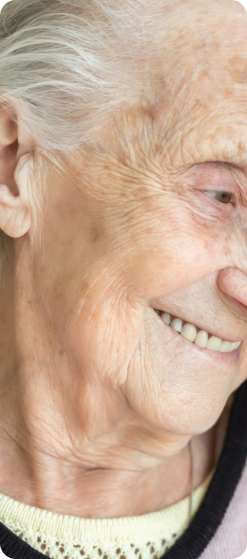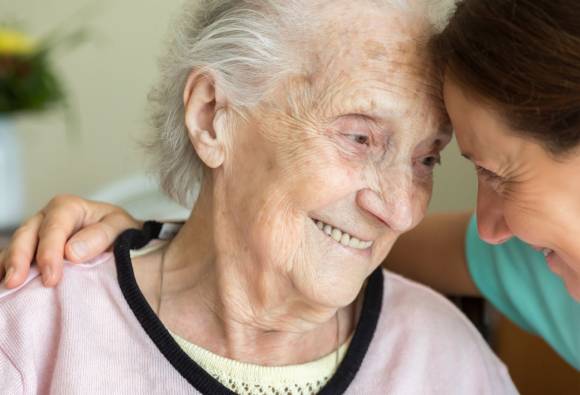Home care explained
Who can benefit from care?
MSH Healthcare provides care for adults aged 18+. A residential care home is not the only option. With home care, you can continue to live in the place you know and love.
Peace of mind for the elderly
For an elderly relative or friend, a carer can become a huge source of support, especially for someone who is frail or regularly experiencing falls. More than just home help, a home carer for the elderly offers families with extra reassurance that someone is there to cook regular meals, administer medication, on-hand in an emergency and also to offer ongoing companionship.
Someone living with dementia
If your loved one is living with dementia, the daily support of a familiar face is crucial in easing anxiety and any challenging behaviours. Your carer will work for weeks at a time before taking time off, with a regular relief carer whom you will get to know too.
With a team of dementia specialists, we can also offer tips for managing various behaviours associated with dementia. Our focus is on understanding the causes and adjusting support, whether it’s using visual prompts for people and rooms, specific tips for mealtimes and rewarding activities such as creating a life story book.
And as a member of the Dementia Action Alliance, we’re always looking to provide the best support we can for those with different types of dementia.
Other medical conditions
Our carers have specialisms with many different conditions, including Parkinson’s, Alzheimer’s, support after a stroke, multiple sclerosis, motor neurone disease, diabetes, Huntington’s disease, and even depression or anxiety.
Whatever your condition, we will create a package of care that helps you to live your life in the way you want. Our nurse-led team of Registered Nurses offer extra support as needed.
Trained palliative carers are also available to support someone at the end of their life. They each provide specialist support to help with the day to day things and enable you or your loved one to pass peacefully at home.
Temporary support after an operation
You may need some temporary care after an accident or planned operation, such as after a knee or hip operation. Even if it’s just for a few days, a carer can help to ease your recovery at home.
Along with cooking meals and the household chores, your carer can also support with strengthening exercises, based on guidance from your physiotherapist.
24 hour care at home
24 hour home care is a personalised service that allows you or your loved one to receive tailored specialist support that matches their current lifestyle and routine.




Types of care we offer...

Live IN Care
Live In Care offers round-the-clock support to you in your home, so you can receive the care you need whenever you require it. Residing with you in your home, a live-in carer will stay with you day and night, getting to know everything about you and your routines whilst providing bespoke care. And because we understand how unsettling it may be to invite someone you don’t know to live in your home with you, we’ll work with you to select the perfect care for you, in both care experience and personality.

Visiting Care
Visiting care is dedicated home care on an hourly basis that allows you to choose when and how you need support. Carers may pop in twice a week or several hours a day to give you the support you need – whether that’s personal care and help to prepare your meals, light housework, taking you to appointments or general companionship. Visiting carers may also be involved in your care to provide a rest break for your live-in carer.

Respite Care
Respite care is designed to be delivered on a short-term basis from either a live-in carer or visiting carer. You may choose respite care if your regular caregiver needs to take a break to recharge their batteries, if you’ve just been discharged from hospital and need extra help while you recover or if you want to take a holiday or attend a celebration but are unable to by yourself. We’ll ensure that you have a carer who is able to deliver the right level of complex care that you require.

What goes into a home care plan?
A care support plan will include all of the details relating to an individual’s health care needs, including any diagnosis that they may have, and the treatment required.
A support plan is a detailed document that contains everything about the customer that a live-in carer needs to know when they are providing care. It includes details of their next of kin, medication, health condition(s), hobbies and interests, meal preparation and personal care, as well as information on their property and general likes and dislikes.
Every MSH client has a support plan that is created during the initial live-in care assessment by the local Live-in Care Manager and the customer before care begins. Some customers choose to have family members or 24 hour care professionals – such as occupational therapists or social workers – present during the assessment, which can often help with providing all of the information the Live-in Care Manager will need.
A copy of the support plan is kept in the customer’s property so that the customer or carer can access it at any time.
Complex care support plans will have involvement from a clinical nurse,
who will work closely with the care manager carrying out the initial assessment to ensure all aspects of the customer’s clinical care requirements are catered for. For example, there may be specific instructions for someone with a stoma and the amount of support a carer is to deliver.
All of our care plans are designed to enable an individual to lead as independent a life as possible, ensuring they have a safe environment and appropriate support to do so.
